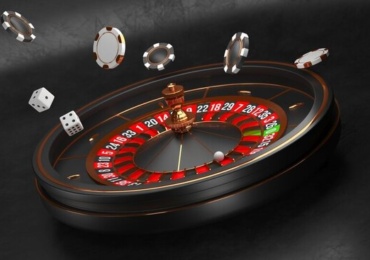Discover how luck and skill impact success in table games. Explore strategies, probabilities, and why online games balance chance and player decisions.
Introduction
Table games have long been the heartbeat of casinos, drawing players with the thrill of uncertainty and the allure of potential winnings. Whether it’s poker, blackjack, baccarat, or roulette, every table game carries a unique balance of luck and skill. But the question remains: what really determines success at the table? Is it raw luck, or does skill give players a significant edge?
As the rise of Dis88 online games has transformed the way players engage with table games, understanding this dynamic has never been more relevant. Online platforms offer both live dealer experiences and virtual versions, where luck, probability, and skill intersect in fascinating ways.
In this article, we will explore the role of luck and skill in winning table games, examine which games lean more heavily toward one or the other, and highlight how players can improve their chances by recognizing this balance.
Luck in Table Games: The Power of Chance
Luck is an undeniable part of gambling. Every shuffle, spin, or roll introduces an element of randomness. Without luck, the excitement of the unknown would vanish.
Examples of Luck-Based Games:
- Roulette – Players rely entirely on where the ball lands on the wheel.
- Craps – Dice rolls create an unpredictable sequence of results.
- Baccarat – Though strategic betting exists, the outcome is ultimately dictated by the cards drawn.
These games highlight the pure essence of chance. No matter how seasoned a player is, they cannot influence the spin of a wheel or the roll of dice.
However, luck does not always mean complete helplessness. Managing bets, bankroll, and knowing when to walk away are skills that allow players to maximize their experience in luck-dominant games.
Skill in Table Games: Strategy and Decision-Making
Unlike pure chance games, certain table games give players an opportunity to use strategy to tilt the odds slightly in their favor. Skill comes into play through knowledge of the rules, probability, and optimal decision-making.
Examples of Skill-Based Games:
- Poker – Involves strategy, bluffing, and reading opponents. Skillful players consistently outperform beginners.
- Blackjack – Basic strategy and card counting (in physical casinos) can reduce the house edge significantly.
- Pai Gow Poker – Success depends on how players split their hands and manage risk.
These games demonstrate how preparation and experience allow players to gain an advantage. Unlike roulette, where no decision can change the outcome, poker rewards skillful analysis and adaptability.
The Hybrid Nature of Many Table Games
Most table games fall somewhere between pure luck and pure skill. Even in games of chance, the way a player manages their money and bets adds a strategic element. Conversely, in skill-heavy games, luck can still overturn even the most careful strategy.
For instance:
- Blackjack combines both — cards are random (luck), but optimal strategy (skill) determines the best responses.
- Poker requires skill, but even the best players can lose to bad luck in the short run.
This hybrid nature is what makes table games so engaging. Players are constantly navigating between what they can control (skill) and what they cannot (luck).
Online Games and the Luck vs. Skill Debate
The digital revolution has changed how people experience table games. Online games bring traditional casino classics to players’ screens, offering both live dealer versions and RNG (random number generator) models.
In online platforms:
- Live dealer games simulate the real-world experience, where luck and skill balance out similarly to physical casinos.
- Virtual games rely heavily on RNG software, ensuring outcomes are entirely fair and randomized.
Interestingly, online games also give players more opportunities to practice strategies. With tutorials, free play modes, and analytics, players can hone their skills without risking money. This makes the skill element more accessible than ever before.
Common Misconceptions About Luck and Skill
- “Luck is everything.” – Not true for games like poker or blackjack, where long-term skill prevails.
- “Skill guarantees wins.” – Even the most skilled players are subject to short-term losses due to luck.
- “Online games are rigged.” – Licensed platforms use RNGs and audits to ensure fairness, balancing chance with strategy opportunities.
By understanding these misconceptions, players can approach table games more realistically.
Tips for Balancing Luck and Skill in Table Games
- Know the Game Rules Thoroughly – Knowledge increases confidence and reduces costly mistakes.
- Use Proven Strategies – Apply basic strategies for blackjack, poker, or baccarat to maximize success.
- Bankroll Management – Luck cannot be controlled, but smart money management ensures longer play.
- Practice Online – Free versions of online games allow players to test strategies before playing for real.
- Stay Disciplined – Emotional decisions often erode skill; patience and control keep players in the game.
Conclusion
The battle between luck and skill in table games is what makes them timeless. Some games rely almost entirely on chance, while others reward careful strategy and experience. In the world of online games, this balance is even more pronounced, giving players the tools to practice, learn, and refine their approach.
Ultimately, the thrill of table games lies in embracing both elements — accepting the unpredictability of luck while sharpening the skills that can shift the odds in your favor.
So, whether you’re rolling dice, spinning a roulette wheel, or strategizing in poker, remember that both luck and skill are at play. And as you continue exploring the exciting world of gaming, join the growing community of fans who celebrate every aspect of this journey. Support the growth of gaming culture and the excitement of every league today.

